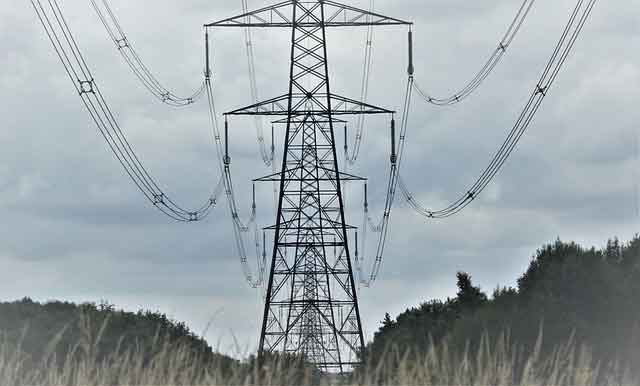Canada's Electricity Exports at Risk Amid Growing U.S.-Canada Trade Tensions

NFPA 70e Training - Arc Flash
Our customized live online or in‑person group training can be delivered to your staff at your location.

- Live Online
- 6 hours Instructor-led
- Group Training Available
US-Canada Electricity Tariff Dispute intensifies as proposed tariffs spur Canadian threats to restrict hydroelectric exports, risking cross-border energy supply, grid reliability, higher electricity prices, and clean energy goals in the Northeast and Midwest.
Key Points
Trade clash over tariffs and hydroelectric exports that threatens power supply, prices, and grid reliability.
✅ Potential export curbs on Canadian hydro to US markets
✅ Risks: higher prices, strained grids, reduced clean energy
✅ Diplomacy urged to avoid retaliatory trade measures
In early February 2025, escalating trade tensions between the United States and Canada have raised concerns about the future of electricity exports from Canada to the U.S. The potential imposition of tariffs by the U.S. has prompted Canadian officials to consider retaliatory measures, including restricting electricity exports and pursuing high-level talks such as Ford's Washington meeting with federal counterparts.
Background of the Trade Dispute
In late November 2024, President-elect Donald Trump announced plans to impose a 25% tariff on all Canadian products, citing issues related to illegal immigration and drug trafficking. This proposal has been met with strong opposition from Canadian leaders, who view such tariffs as unjustified and detrimental to both economies, even as tariff threats boost support for Canadian energy projects among some stakeholders.
Canada's Response and Potential Retaliatory Measures
In response to the proposed tariffs, Canadian officials have discussed various countermeasures. Ontario Premier Doug Ford has threatened to cut electricity supplies to 1.5 million Americans and ban imports of U.S.-made beer and liquor. Other provinces, such as Quebec and Alberta, are also considering similar actions, though experts advise against cutting Quebec's energy exports due to reliability concerns.
Impact on U.S. Energy Supply
Canada is a significant supplier of electricity to the United States, particularly in regions like the Northeast and Midwest. A reduction or cessation of these exports could lead to energy shortages and increased electricity prices in affected U.S. states, with New York especially vulnerable according to regional assessments. For instance, Ontario exports substantial amounts of electricity to neighboring U.S. states, and any disruption could strain local energy grids.
Economic Implications
The imposition of tariffs and subsequent retaliatory measures could have far-reaching economic consequences. In Canada, industries such as agriculture, manufacturing, and energy could face significant challenges due to reduced access to the U.S. market, even as many Canadians support energy and mineral tariffs as leverage. Conversely, U.S. consumers might experience higher prices for goods and services that rely on Canadian imports, including energy products.
Environmental Considerations
Beyond economic factors, the trade dispute could impact environmental initiatives. Canada's hydroelectric power exports are a clean energy source that helps reduce carbon emissions in the U.S., where policymakers look to Canada for green power to meet targets. A reduction in these exports could lead to increased reliance on fossil fuels, potentially hindering environmental goals.
The escalating trade tensions between the United States and Canada, particularly concerning electricity exports, underscore the complex interdependence of the two nations. While the situation remains fluid, it highlights the need for diplomatic engagement to resolve disputes and maintain the stability of cross-border energy trade.











